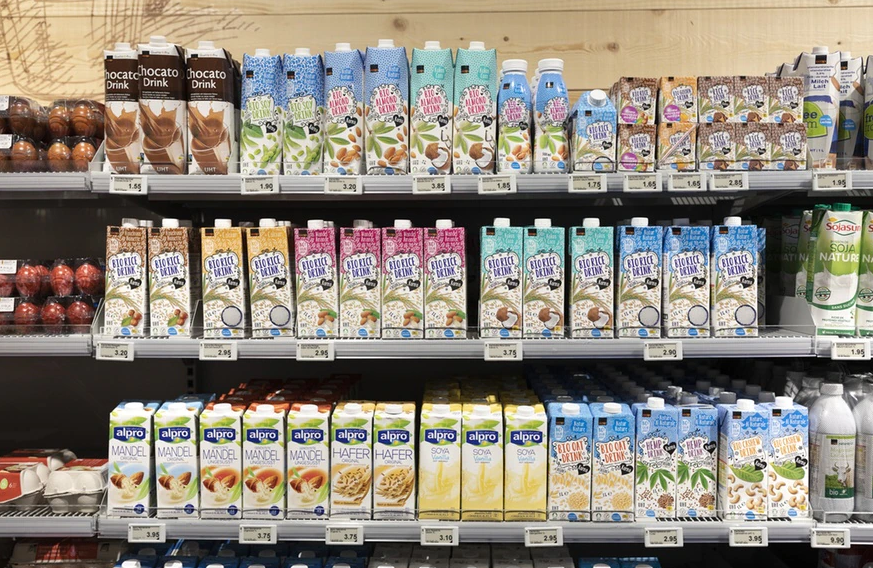Swiss supermarkets offer a wide choice of alternatives to animal-based milk © Keystone / Gaetan Bally Plant-based dairy products continue to gain in popularity in Switzerland, with sales of plant-based milk more than doubling since 2017. However, dairy substitutes still occupy a niche in the overall market. Last year dairy substitutes generated sales of CHF172 million (5 million) in the retail trade, the Federal Office for Agriculture (FOAG) said on ThursdayExternal link, publishing the results of a surveyExternal link. In 2017 turnover was CHF96 million. The retail market share of dairy substitutes was 4.2% last year. Plant-based milk, yoghurt and cheese has seen growth of over 20% in recent years. Margarine, on the other hand, a butter substitute usually made
Topics:
Swissinfo considers the following as important: 3.) Swissinfo Business and Economy, 3) Swiss Markets and News, Featured, Latest News, newsletter
This could be interesting, too:
Nachrichten Ticker - www.finanzen.ch writes Die Performance der Kryptowährungen in KW 9: Das hat sich bei Bitcoin, Ether & Co. getan
Nachrichten Ticker - www.finanzen.ch writes Wer verbirgt sich hinter der Ethereum-Technologie?
Martin Hartmann writes Eine Analyse nach den Lehren von Milton Friedman
Marc Chandler writes March 2025 Monthly

Swiss supermarkets offer a wide choice of alternatives to animal-based milk © Keystone / Gaetan Bally
Plant-based dairy products continue to gain in popularity in Switzerland, with sales of plant-based milk more than doubling since 2017. However, dairy substitutes still occupy a niche in the overall market.
Last year dairy substitutes generated sales of CHF172 million ($175 million) in the retail trade, the Federal Office for Agriculture (FOAG) said on ThursdayExternal link, publishing the results of a surveyExternal link. In 2017 turnover was CHF96 million.
The retail market share of dairy substitutes was 4.2% last year. Plant-based milk, yoghurt and cheese has seen growth of over 20% in recent years. Margarine, on the other hand, a butter substitute usually made from vegetable oil and available for years, is losing popularity.
Dairy substitutes are usually more expensive than products made from milk that has come from an animal. Cheese substitutes, for example, are almost twice as expensive as cheese. The price difference for yoghurt substitutes is about 82% and for milk substitutes about 81%.
The FOAG says dairy substitutes are particularly popular with young families with high incomes.
‘Great potential’
The main dairy substitute product is plant-based milk, which accounts for a third of the total dairy substitute market, according to the survey. Of this, oat milk is responsible for almost half of all sales (45%), ahead of other plant-based milks such as soy, almond and rice milk. Sales are lower for milk made from coconuts, peanuts, cashews, hazelnuts, spelt, peas, millet and hemp.
The FOAG said these products hold “great potential for Swiss agriculture, especially for the production of plant-based raw materials”. Raw materials and semi-finished products from which dairy substitutes are made are currently largely imported, it said.
The office based its analysis on data from NielsenIQ Switzerland. Data from 4,000 households in the German-speaking and French-speaking parts of Switzerland was collected, as well as data from the retail trade.
Tags: Featured,Latest news,newsletter








